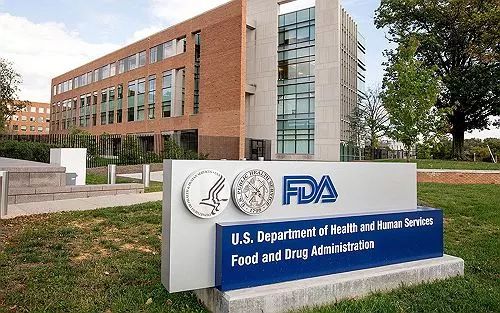OLABS ∨
解决方案 ∨

美国食品药品监督管理局(FDA)周一(2019年1月7日)发布了一份针对数字医疗开发商开展的最新版预认证试点计划。这份由三部分组成的试点计划详细说明了FDA将如何在其合法权限范围内实施预认证试点项目,并计划在2019年通过de novo监管审查途径对预认证试点计划进行测试。
FDA局长Scott Gottlieb在公布这一最新消息时,提到了两个在去年获得de novo许可的数字医疗应用程序实例,其中包括Viz.ai公司开发的脑卒中检测应用程序(该应用程序采用了人工智能技术),以及Apple Watch获得de novo许可的两项新功能(可以用来检测心房颤动)。
2017年,FDA器械和放射健康中心(CDRH)发布了数字医疗创新行动计划,随后根据试点计划对某些数字医疗开发者进行预认证的想法浮出水面。最终,FDA确定9家企业作为试点企业,分别为苹果公司、Fitbit、三星电子、Verily生命科学、强生、罗氏控股(Roche Holding AG)、Pear Therapeutics、Phosphorus和Tidepool。此后, 此类试点计划引起了业内专家和某些立法议员越来越多的关注。试点计划之所以如此备受关注,一定程度上是因为参与试点的公司可以绕过一些上市前要求,而如何在FDA合法权限范围内实施该计划尚不清晰明了。
这份长达四页的报告阐述了FDA在现有法定权限范围内执行预认证计划的监管框架,明确了对符合条件的低至中等风险风险器械采用de novo分类程序的问题,确保仅限于医疗器械独立软件(Software As a Medical Device,SAMD)可以进入下一审批阶段。
最新发布的测试计划指出,测试阶段对卓越评估要素的验证也可以为针对未来的预认证模式所建立的框架提供证据支持。在该框架范围内,成功通过卓越评估的公司可以将低风险产品直接推向市场。”
针对将在2019年进行的预认证试点计划测试,FDA打算采用一种简化的方式,结合接受了FDA卓越评估的的申请者所提供的信息,对传统的de novo分类请求进行平行审查。通过上述方式,FDA将取代对de novo请求的某些要求,或者取代为合理保证医疗器械安全性和有效性而实施特殊控制的要求,又或者取代质量管理体系相关要求。
Gottlieb表示:“申请者不用承担额外的费用负担,相反,FDA将建立两种平行审核流程,一种通过预认证模式对de novo申请进行审核,而另一种则采用传统方法进行审核。”申请de novo请求预认证的企业在获得预认证资格后,需要提交510(k)预认证申请,以便在试点测试期间对现有医疗器械独立软件产品进行任何新的修改。
此前,CDRH中心原计划会在2018年3月至12月期间开始向更多公司开展预认证工作,而FDA所面临的种种挑战导致其迟迟未能实现这一愿景。尽管如此,FDA还是在2018年先后发布了一系列关于预认证试点计划的最新进展情况。FDA公布的最新消息表明,预认证工作模式已进入第三轮更新迭代,旨在整合新的监管框架报告和2019年测试计划。
预认证这一概念也愈加表明,要对那些有良好组织卓越能力的数字医疗开发者给予更多的信任。该报告还提到了CDRH中心在2018年制定的一项关于吸引新型技术制造商进入美国的成功衡量标准。
针对FDA发布的最新消息,强生公司数字医疗政策负责人Diane Johnson告诉Focus,“强生公司期待在未来一年里继续与FDA合作,制定一种能够方便患者使用这些产品的程序,同时还要保证具有相同的安全性和有效性监管标准。”此外,Viz.ai首席执行官兼联合创始人Chris Mansi此前告诉Focus,预认证计划一旦开始运作,Viz.ai公司也将参与其中。
与此同时,FDA一直在为预期的de novo申请数量激增做准备,而在2018年,FDA的de novo审批创下了多项历史纪录。FDA所采取的一系列措施包括在2018年12月提出的一项新规则——这是第一项专门针对de novo请求的具体规则,旨在提高de novo请求和审查流程的清晰度和一致性。
FDA to Test PreCert De Novo Requests Under Pilot
The US Food and Drug Administration (FDA) issued a three-part update Monday on its Pre-Certification (PreCert) pilot program for digital health developers, detailing how the agency intends to operationalize the pilot within its current authorities and test it in 2019 using its de novo regulatory review pathway.
In announcing the updates, FDA Commissioner Scott Gottlieb pointed to two examples of digital health applications that were granted de novo clearances last year. These include Viz.ai’s stroke detection application, which is powered by artificial intelligence, and the two de novo clearances on applications in the new Apple Watch for atrial fibrillation.
The idea for pre-certifying certain digital health developers under the program from FDA’s Center for Devices and Radiological Health and nine selected companies surfaced in 2017. Since then, the plans have drawn more and more scrutiny from industry experts and certain lawmakers. This was partly due to a lack of clarity around how the program would be implemented within FDA’s current statutory authorities as participating companies are allowed to bypass certain premarket requirements.
The four-page report that lays out FDA’s regulatory framework to conduct PreCert within current authorities clarified the use of the de novo classification process for eligible low to moderate risk devices, allowing for the next phase under a scenario limited to software as a medical device (SaMD).
“The validation of the excellence appraisal elements during this testing phase may also provide evidence to develop a framework for a future PreCert model, in which lower-risk products could be introduced directly to market by firms that have successfully been excellence appraised,” the new test plan states.
Under the 2019 test of the PreCert pilot program, the agency intends to use a streamlined approach in conducting a parallel review of a traditional de novo classification request in conjunction with information from sponsors who have undergone an FDA excellence appraisal. This information would take the place of certain content requirements for de novo requests, requirements to establish special controls for reasonable assurance of safety and effectiveness or quality system regulation requirements.
“The sponsor will incur no additional burden,” Gottlieb said. “Instead, the FDA will set up two parallel review processes, one using the PreCert model and one using the traditional approach to the review of a de novo application.” After a PreCert de novo is granted, pre-certified companies would be directed to submit PreCert 510(k) submissions to propose any new modifications to existing SaMD products under the pilot test.
Challenges have led to delays in opening up PreCert to more companies as CDRH’s previously stated goal was for this to occur sometime between March and December 2018. Still, the agency issued several updates on the development process throughout 2018. The latest updates resulted in the third iteration of the PreCert working model to integrate the new regulatory framework report and the 2019 test plan.
The PreCert concept also increasingly speaks to placing greater trust on digital health developers with a demonstrated history of meeting an organizational excellence threshold. It also speaks to a CDRH measure of success set in 2018 around attracting manufacturers of novel technologies to the US.
In response to the latest updates, Johnson & Johnson digital health policy lead Diane Johnson told Focus that the company “looks forward to continuing to work with FDA throughout the coming year to develop a process that will facilitate patient access to these products, while ensuring the same regulatory standards for safety and effectiveness are maintained.” Viz.ai CEO and Co-founder Chris Mansi previously told Focus that the company intends to participate once PreCert becomes operational.
Meanwhile, the agency has been prepping for an anticipated spike in submitted de novo requests after a record year in de novo approvals in 2018. The efforts include a new rule—the first one to be de novo-specific—proposed in December 2018 for greater clarity and consistency in de novo requests and review processes.
内容来自:RAPS
整理翻译:奥咨达
如果你有寻找医疗器械孵化,
那就与我们取得联系吧!
您可以填写右边的表格,让我们了解您的服务需求,这是一个良好的开始,我们将会尽快与你取得联系。当然也欢迎您给我们写信或是打电话,让我们听到你的声音!
24小时免费咨询热线:
400-6768632
您想参观OLABS创新工厂,
那就与我们取得联系吧!
您可以填写右边的表格,让我们了解您的服务需求,这是一个良好的开始,我们将会尽快与你取得联系。当然也欢迎您给我们写信或是打电话,让我们听到你的声音!
24小时免费咨询热线:
400-6768632